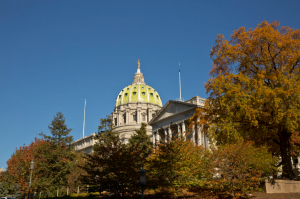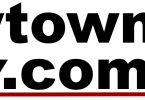In the waning months of the administration of President Barack Obama, a policy put forth by the U.S. Department of Labor to raise the salary that delineates which employees are eligible for overtime pay ran aground in a federal courtroom. After its implementation was halted, the newly installed Trump administration opted not to pursue the new rule.
Now, with the future of the federal guideline in flux, the Pennsylvania Department of Labor and Industry is preparing to move forward with a similar policy rather than waiting to see how things shake out at the national level. This proposed rulemaking has earned hearty praise from those who see it as a way to reinvigorate the diminishing middle class in the state, but it has also received harsh criticism from the business and nonprofit communities that stand to see higher payroll expenses if the rule goes into effect.
At issue are workers labeled as “exempt,” meaning that their job duties and rate of pay are such that they are not entitled to receive overtime pay rates if they work more than 40 hours in a week. Such workers are often described as salaried, as opposed to hourly employees who are paid only for the hours they work and typically receive 150 percent of their pay rate, or more, when they work overtime.
Exempt and salaried workers are typically synonymous, but that’s not automatically the case. To qualify as exempt, the worker must meet certain job requirements, generally meaning they have some sort of supervisory role, and their pay must be over a certain annual amount. The federal threshold right now is $23,660 annually, and this, in effect, means that no one who makes less than that can continue to be exempt and must be paid overtime after 40 hours worked each week.
The Pennsylvania threshold is actually well below the federal number, at $13,000 annually. But the state Department of Labor & Industry has indicated that it intends to increase that to $31,720 in 2019, then to $39,832 in 2020 and to $47,892 in 2021.
The change would only affect white-collar workers in the private sector, and department officials who appeared Wednesday before the House Labor & Industry Committee indicated they expect it to affect 460,000 workers in the state.
The upshot for employers is that workers who currently operate as salaried employees, but who have an annual salary below the new threshold, would suddenly become eligible for overtime unless their pay was increased above the dividing line. Either way, employers would see an increase in payroll expenses or be forced to reduce staff.
Labor and Industry Secretary Jerry Oleksiak told the committee that when the current threshold was put in place in 1977, it covered 60 percent of salaried employees. As inflation has shifted while the threshold remained unchanged over the intervening decades, it now captures only 7 percent. The department’s goal is to bring that back up to 30 percent, he said.
Rep. Kate Klunk, R-Hanover, asked Oleksiak why the department was moving forward with state-level rules at a time when their impact was unclear.
“Why are we doing this now?” she asked. “I say that because last week we sat in a hearing, the York County delegation, we hosted a hearing on the Trump tax cuts, and we heard from employers about what the economy is doing right now, and how employees are receiving more in their paycheck, they’re receiving better benefits because of these Trump tax cuts, and the Department of Labor at the very same time at the federal level is also undergoing their own rulemaking.”
Oleksiak’s response suggested that the impetus for the new rules came at least in part from Democratic Gov. Tom Wolf.
“We feel, the administration feels, that 40 years is pause enough,” he said. “There have always been differences between the federal law and the state law. And this would be just a continuation of any differences that may occur. And we know that the federal process has been delayed for quite some time. It is beginning again, but we have no idea of when and if that will be resolved.”
But to labor attorney Kathy Speaker MacNett, the divisions between state and federal policy are already creating headaches for employers, and the proposed rules stand to exacerbate that issue. She called it a “noncompliance trap,” whereby employers focused on one set of policies may not realize they’ve run afoul of the other.
“The state has been talking about the 30th [percentile for the threshold],” she said. “At some point, the feds were talking about the 40th percentile, so they may still go up. And then if you’re complying with the Pennsylvania law in good faith, you may be what I call dirty under the federal law – clean under the state law, but dirty under the federal law because of the noncompliance trap.”
The committee also heard from the nonprofit sector. Elizabeth Hays, the human resources director for MHY Family Services in Mars, Pa., talked about the restrictions that nonprofits face with their reimbursement rates and services delineated by the state.
“As an underfunded nonprofit with limited flexibility in the budget, I have serious concerns about how MHY will cover potential overtime expenses while still providing high quality services for the at-risk youth and the families that we serve,” she said. “Our nonprofit’s ability to provide critical services will be negatively impacted.”
Speaking for the private sector was Sky Fogal, owner of Skirmish Paintball and Pocono Whitewater Rafting. He told committee members about the seasonal nature of his business, which requires long hours during the busy season and significantly reduced hours during the offseason. By denoting his employees as salaried positions, he said, they get the advantage of a steady paycheck all year long regardless of how much work is required.
Without the flexibility that having much of his staff be exempt provides, he said, he’d have to reduce their hours during the busy season, pay them far less during the offseason, and bring on seasonal workers as needed. Both the year-round and seasonal workers would then likely need second jobs to make ends meet, he said.
“Small business owners like myself work tirelessly to follow the rules, but state and federal regulations are different,” he said. “So it’s like playing a football game with two separate rule books and two separate referees. Small businesses simply don’t have the resources to have a lawyer on staff, or even an HR person to help make sense of this quagmire. A multitude of studies have shown that a stable regulatory environment is best for business growth.”
But to Rep. Dan Miller, D-Mt. Lebanon, the idea that workers were taking advantage of public benefits to make ends meet, and yet still considered exempt from overtime, was offensive.
“It amazes me the amount of these classified jobs that end up being things that the public ends up paying for, because we seemingly accept from industry, ‘well hey, it’s OK for you to pay somebody $24,000 a year, and we’ll pick up the remaining of the tab that support the family,’” he said. “If they’re working for $24,000 a year, anything above 40 hours a week that they’re not getting paid for is abuse.”









